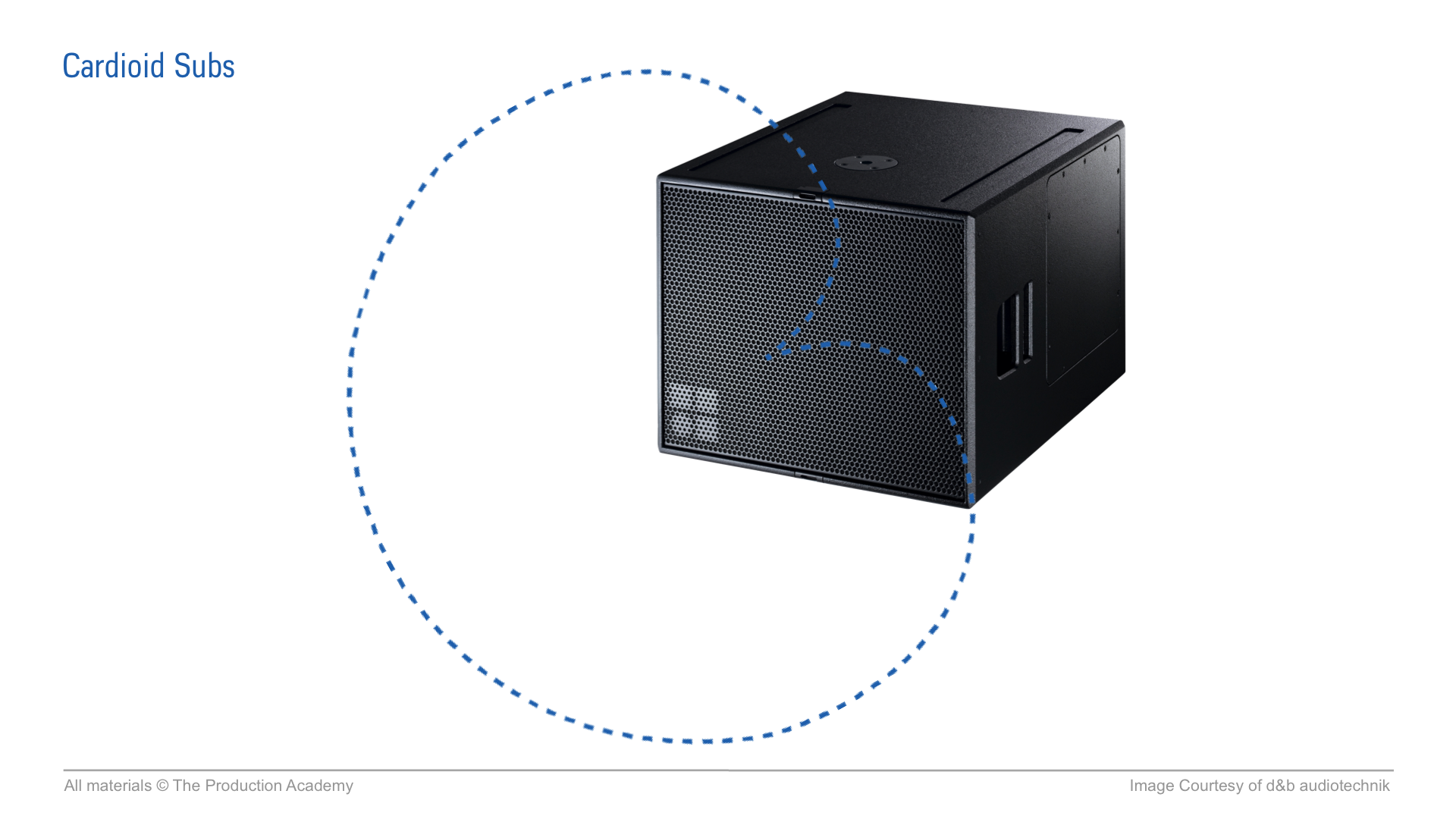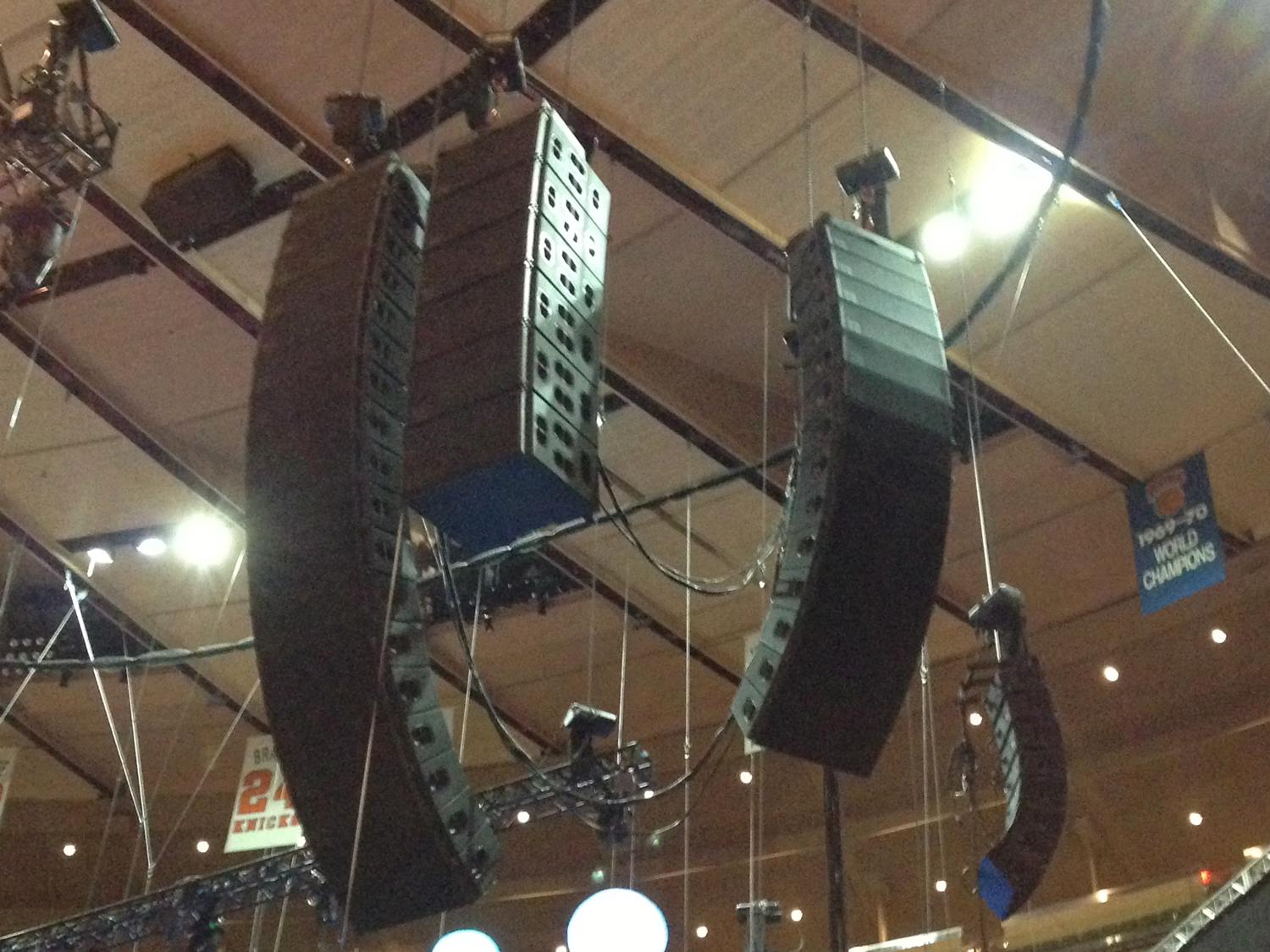010 – Subs and Stage Sound
Low frequencies are difficult to control.
Written by Scott Adamson
We discussed in another post recently that the stage sound changes from room to room. Obviously, this has a lot to do with acoustics. But, the position of the main speakers and subs can also change how performers hear themselves on stage.
Subs can be especially disruptive. They produce a ton of low end, and if they're close to the stage it can sound louder for the performers than for the engineer at FOH. Of course, some shows are meant to have a TON of subs, and this can be great for loud powerful music. But with quieter music, if the subs aren't properly mixed it can be really annoying to the people performing.
One problem is that low frequencies are way more omnidirectional than high frequencies. But, modern professional subs can be configured to a cardioid pattern, just like a microphone. This gives the audio engineer way more control over where the low frequencies are going. Still, some engineers prefer omnidirectional subs near the stage to give the people on stage more oomph.
If we're building an arena show, we can keep the subs away from the stage by flying them (hanging them in the air), and/or keeping them in front of the stage. Here's a photo of a show I did at Madison Square Garden, where we flew 6 d&b J subs on each side of the main speaker system. We also had some subs in front of the stage for the people standing on the floor.
But, as we all know, flying huge speakers is impossible for almost every live music venue in the world. Luckily, with fast-advancing audio technology, we can now get subs that create a bunch of sound in a small package. But they aren't THAT small, and for many venues the only place to put them is under the stage. This can really make the bass feel loud on stage since you're feeling it through your feet as well as hearing the low end.
Get real-world live sound mixing tips straight to your inbox.
Still, for every situation there should be a happy medium. That's what we try to do as sound engineers so that everyone on stage and in the crowd can have the best experience at the show. And even though there will always be some imperfection in the acoustics or speakers or console or whatever, it's okay just to make it the best it can be for any given situation. The unique experience of any given performance is part of the fun of live music!





